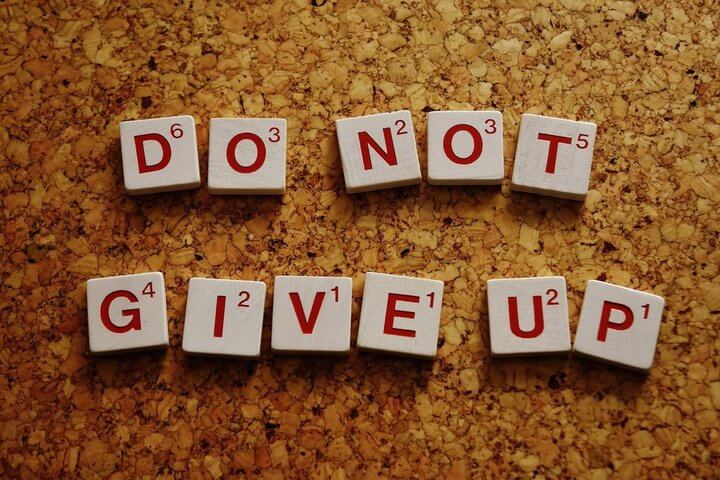Developing mental strength is an essential aspect of a healthy and fulfilling life. It’s the ability to cope with difficult situations and thrive in the face of adversity. By creating a flexible and robust mindset, you can learn from setbacks and bounce back stronger. Plus, you equip yourself with the tools to tackle challenges head-on and emerge wiser.
It involves practices that enhance your ability to deal with stress and overcome failure. Some of these are a positive attitude, self-awareness, and emotional mastery.
In this fast-paced and unpredictable world, developing mental strength is more important than ever. There will always be challenges in life, unexpected twists and turns that might leave you feeling overwhelmed. But, mental toughness helps you navigate these challenges with clarity and determination. It helps you adapt to change.
In this post, we’ll explore three practical tips to develop mental strength.
Let’s get started!
3 Tips to Develop Mental Strength
Building mental toughness is a process that requires time, effort, and commitment. Here are three practical tips to get you started:
1. Learn to Manage Your Thoughts and Emotions
Developing mental strength starts with taking control of your thoughts and emotions.
By controlling your thoughts, you can shape your mindset and approach challenges with a positive outlook. To start, become aware of your thinking patterns.
Negative thoughts can impact your mental and physical health, so replace them with positive ones. Use techniques like affirmations and visualization. These can help you train your mind to focus on positive thoughts.
Furthermore, by being aware of your emotions, you can understand their underlying causes. This will improve your emotional well-being and help you develop the control needed to face life’s challenges.
On the other hand, suppressing your emotions can lead to stress and other health issues. Thus, learn to express them in a healthy way, like journaling, talking to a trusted family member, or seeking professional help.
Related article: Empower Yourself: How to Master Your Emotions for a Fulfilling Life
If your emotional abilities aren’t in hand, if you don’t have self-awareness, if you are not able to manage your distressing emotions, if you can’t have empathy and have effective relationships, then no matter how smart you are, you are not going to get very far.
-Daniel Goleman
2. Challenge Yourself: Set and Work Toward Goals
Growth and resilience come from stepping out of your comfort zone and embracing challenges.
Resilience is the ability to bounce back from adversity, which you can develop by viewing setbacks as opportunities to grow. Don’t let the fear of failure hold you back. Instead, try to identify what didn’t work and what you can learn from the experience. Then apply those lessons in the future.
To challenge yourself, set achievable goals that push you beyond your limits. This way, you’ll build the skill to cope with setbacks and come back stronger and wiser. So embrace discomfort as a sign of growth, and push yourself to reach new heights.
3. Embrace Change and Adopt a Growth Mindset
In the article What Having a “Growth Mindset” Actually Means by Carol Dweck, she mentions the following:
To briefly sum up the findings: Individuals who believe their talents can be developed (through hard work, good strategies, and input from others) have a growth mindset. They tend to achieve more than those with a more fixed mindset (those who believe their talents are innate gifts).
A growth mindset involves a willingness to change and push through obstacles, knowing that effort will pay off.
Embracing change is key to developing mental strength, so how you respond to it matters. To learn and grow from it, cultivate a positive attitude toward new experiences. Be open to different perspectives without compromising your values.
You can also try new things, take on new challenges, and seek experiences to expand your horizons. Know that each obstacle you overcome makes you stronger and wiser.
Besides the three tips above, do your best to engage in regular physical exercise. Not only is it beneficial for your body, but also for your mental strength. Exercise releases endorphins, which have natural stress-relieving and mood-boosting effects. Regular exercise also helps you feel more energetic and mentally clear. Plus, building this habit requires discipline, will-power, and managing thoughts and emotions. These skills build your mental strength and serve you in all other areas of your life. Finally, remember to take time to relax and recharge.
Factors That Affect Mental Strength
Understanding the key factors shaping your mental strength can empower you to develop the tools to enhance it. Here are some elements that may affect it:
Emotional health
This refers to your ability to manage and regulate emotions. People with good emotional health are better equipped to cope with negative feelings. They are also more likely to have healthy relationships and positive self-esteem.
Thoughts and beliefs
Your thoughts and beliefs have an immense impact on how mentally strong you are. If you tend to put yourself down or hold limiting beliefs, it can harm your confidence and resilience. However, a positive outlook and empowering beliefs can help you develop mental strength.
Social Support
Feeling stressed or facing adversity alone can be tough. A strong support system of friends, family, peers, and mentors can help you deal with adversity. They can provide encouragement, guidance, and perspective during challenging times.
Mental Strength Examples
- Resilience.
You show mental strength when facing setbacks with resilience and determination. Instead of giving up, you find the strength to persevere, adapt, and overcome obstacles. - Maintaining a positive attitude.
You focus on solutions and tend to find the silver lining in every situation. Plus, you have the positive mindset and willpower to pursue your dreams and overcome the obstacles on your path. - Handle pressure.
You can see mental strength in athletes and business leaders. They handle pressure and perform at their best, even in high-stakes situations. Furthermore, they are more likely to remain focused and motivated, even when faced with difficult decisions.

To wrap things up
Mental strength is a crucial aspect of personal growth. Like building physical strength, it requires practice, patience, and perseverance.
But, with every hurdle you overcome, you become stronger and wiser. You get better at embracing the uncertainties and challenges of life, and approach them with a growth mindset.
A few years ago, I came across an insightful statement by Tony Robbins: “Problems are here to stay.” This means that no matter how much we grow, challenges will always be part of our journey.
This realization was empowering for me, as it shattered my belief that personal growth would remove all my problems. It freed me from the burden of trying to achieve an unattainable goal of a problem-free existence.
So, by mastering your emotions and challenging yourself, you can develop the skills needed to thrive in the face of adversity. You can focus on developing problem-solving skills that will help you navigate challenges with more ease.
True growth comes from within. Keep pushing yourself out of your limiting beliefs. Hold to your values, and embrace new empowering thoughts. Mental strength is a skill that will serve you in all areas of your life.


0 Comments